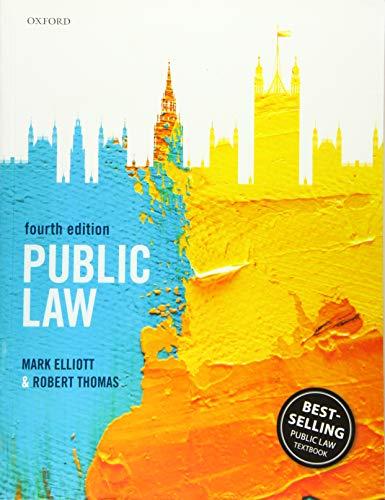Question
Netflix in 2018 In 2018, Netflix had over 125 million subscribers in some 190 countries worldwide. It had earned almost $12 billion in revenues in
Netflix in 2018
In 2018, Netflix had over 125 million subscribers in some 190 countries worldwide. It had earned almost $12 billion in revenues in 2017, and rapid growth in both domestic and international subscribers had fueled intense investor enthusiasm, causing its market capitalization to reach just under $150 billion and making it one of the fastest-growing stocks on the market.
John Sciulli/Getty Images Entertainment/Getty Images
When Netflix was founded in 1997, its business model was to rent and sell movies on DVDs by mail. Customers could browse and select movies online, and those movies would be mailed out to the customer, who would then mail the movies back after watching. Though it initially started with a per-movie rental fee like its largest bricks-and-mortar rival, Blockbuster, it soon moved to a subscription fee. Customers could choose among plans with different prices based on how many movies they wanted to rent simultaneously, and they could keep movies out at long as they wanted without late fees. The subscription plan was a hit, and by 2005 the company was shipping out over a million DVDs a day.
One of the most compelling features of the Netflix site was its recommender system. As people rented movies, Netflix prompted them to review the movies they had already seen. It thus steadily accrued a massive database about correlations among movie preferences that it could use to make movie suggestions to users. For example, if a user gave a five-star rating to "Journey to the Center of the Earth," the system would suggest they might also like "The Mummy," "Indiana Jones and Kingdom of the Crystal Skull," and "Inkheart."
The service turned out to be enormously popular and soon sounded a death knell for bricks-and-mortar video stores. By having centralized inventory and shipping movies to people, Netflix could offer a much wider selection than physical stores could offer, and its scale meant it could both negotiate better prices on content, and invest in value-added services for customers like the review and recommender systems mentioned previously, online movie trailers, and more. Importantly, Netflix was also a key channel for films by small, independent filmmakers to reach audiences, enabling the company to forge relationships that would prove to be increasingly valuable as time passed.
In 2007, Netflix began offering movie streaming, which rapidly grew to be the preferred mode of movie consumption. Then, in 2011, the company began acquiring original content for exclusive distribution on Netflix, starting with the seriesHouse of CardsandLilyhammer. By 2013, it had moved into co-producing original content with production houses such as Marvel Television, Dreamworks, and others. In 2017, it opened Netflix Studios and began recruiting some of television's most successful writers and producers to produce original content in house.
For a movie rental service to vertically integrate into developing its own content seemed a peculiar move. Making films and television shows required fundamentally different technology, equipment, personnel, and expertise than distributing films and television shows. What could a specialist in media distribution know about media production? A lot, it turns out.
Netflix's rapidly growing datasets meant that it knew which customers liked which films, which genres were growing, which new stars were gaining followings, which new production houses were gaining traction, and more. The relationships it had cultivated with independent filmmakers and budding actors helped ensure the firm's access to a pipeline of new creative talent and helped build goodwill toward the company. Sean Fennessey, a writer for pop culture websiteThe Ringer, explained how important Netflix was to frustrated filmmakers who could not raise enough support to get a major studio movie off the ground, "To the creators stifled by the rise of Hollywood's all-or-nothing focus on franchise films, Netflix felt like salve on an open wound."
Netflix also used its massive distribution reach to promote its original content, building audiences for its series and crafting its reputation as a first-tier production house. As put by Ted Sarandos, Netflix Chief Content Officer, "the way we can secure those shows is having a great reputation with talent, having a brand people want to be associated with, and a good track record of delivering."
Furthermore, while most film studios needed to profit directly from their films, Netflix profited in multiple ways from its content: Having popular, exclusive shows helped attract and retain subscribers, and having both a large audience and a powerful library of original content gave it more bargaining power when negotiating license fees for content produced by others. Collectively, it was a powerful advantage.
Netflix planned to spend $8 billion on original content in 2018-an estimated 700 original shows and including 80 original films-making it the largest film producer in the United States.In fact, in the first quarter of 2018, Netflix made 25 films, the same number as the next six largest U.S. studios combined.
Was it a wise move by Netflix to move from a distribution company to a production company?
Can they sustain creating and producing original content or will they ultimately have to buy a movie/television studio?
Step by Step Solution
There are 3 Steps involved in it
Step: 1

Get Instant Access to Expert-Tailored Solutions
See step-by-step solutions with expert insights and AI powered tools for academic success
Step: 2

Step: 3

Ace Your Homework with AI
Get the answers you need in no time with our AI-driven, step-by-step assistance
Get Started


